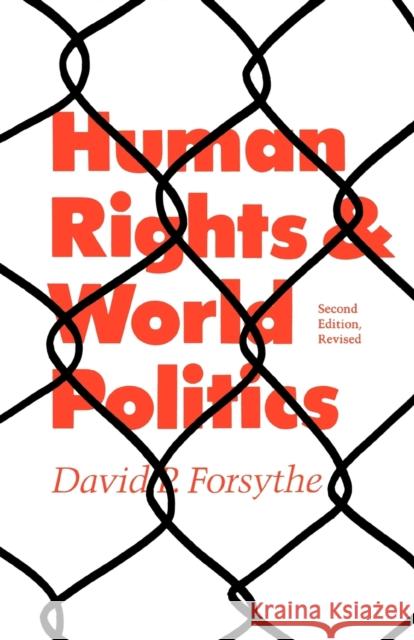Human Rights and World Politics (Second Edition) » książka
Human Rights and World Politics (Second Edition)
ISBN-13: 9780803268692 / Angielski / Miękka / 1989 / 316 str.
By the 1980s the concept of internationally recognized human rights was being reinforced by a growing body of international law and by the multiplication of agencies concerned with such matters as torture in Paraguay, slavery in Mauritania, the British use of force in Northern Ireland, and starvation and malnutrition in East Africa and Southeast Asia. No matter how much a national leader might find it more convenient to focus on other matters, some world organization or private group could be counted on to keep the issue of universal human rights alive. Because the subject is particularly timely, David P. Forsythe has revised Human Rights and World Politics, first published in 1983. For this second edition, Forsythe has updated all chapters and completely rewritten the one on U.S. foreign policy to include the second Reagan administration. After a brief history of the evolution of human rights in international law and diplomacy, he surveys human rights standards as developed by the United Nations and other official organizations. Moving from the definitive core of law, Forsythe turns to the interpretation and implementation of rights agreements; the role of private or unofficial organizations such as Amnesty International and the Red Cross; the relationship between civil-political and socio-economic rights; the role of human rights in U.S. foreign policy, particularly under Carter and Reagan; and lobbying in Washington by human-rights interest groups. In all, Forsythe's exhaustive research and careful analysis bring clarity and concreteness to a subject too often obscured by rhetoric. David P. Forsythe, a professor of political science at the University of Nebraska, is the author of Human Rights and U.S. Foreign Policy: Congress Reconsidered (1988) and other works.











